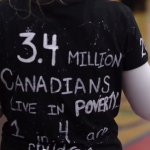This is a new and unique five-semester advanced diploma program.
Child and youth care practitioners offer life-changing support to vulnerable children and youth. Prepare for a rewarding career helping young people by engaging with them in their everyday lives, building on their strengths, and empowering them to make positive changes. As a child and youth care practitioner, you have the opportunity to help youth find their own voice and make a profound difference in their lives.
Find your career
Child and youth care practitioners work front-line with children, youth and their families as part of a multi-disciplinary teams.
Settings include:
- School-based programs
- Child welfare and protection
- Group homes and residential treatment facilities
- Community mental health and children’s mental health programs
- Youth outreach centres
- Community-based child and youth development programs
- Home-based care and treatment
- Parent education and family support
- Hospital-based services
- Youth justice programs
- Private practice
Our grads get great jobs
-
Child and Youth Worker, Kawartha Pine Ridge District School Board
-
Enhanced Support Worker, Military Family Resource Centre
-
Program Manager, Applewood Academy
-
Child and Youth Service Worker, Dnaagdawenmag Binnoojiiyag Child & Family Services Agency
-
Direct Support Professional, Community Living
-
Professor of Child and Youth Care, St. Clair College
-
Manager, Children’s Mental Health Services, Belleville
-
Enhanced Support Worker, Abigail’s Learning Centre
-
Child and Youth Counsellor II, Lutherwood Children’s Mental Health
-
Child and Youth Worker, Children’s Mental Health, Belleville
- Program Manager, Boys and Girls Club
Is it for you?
Child and Youth Care Practitioners support people to live their best lives. To do this, they need:
- Empathy and good people skills
- The ability to be open minded, accepting and non-judgmental
- A strong desire to help others
- A willingness to learn
What employers say:
"Strong relationship building skills. Excellent flexibility in thinking. A commitment to the profession. This is what we have seen in the Loyalist CYC grads that we have hired."
-Jeffrey J. Waplak, MA, RP, Clinical Director
“Our relationship with the Child and Youth Care program at Loyalist College has become integral to our organization's recruitment strategy. Loyalist graduates are exceptionally well prepared for a career in working with this province’s most challenging and vulnerable children and youth.”
-Todd Powell, Director of Residential Services
Bayfield Treatment Centres
"We hire Child and Youth Care Loyalist graduates and value their work ethic, professionalism and knowledge base. We are an organization that supports diversity in many ways and having a complement of staff with a diverse skill set enhances our mandate to offer people the best quality of services."
-Sharon Wright, Manager of Community Development and Volunteer Services
Community Living Belleville and Area
This program is delivered in five semesters, including a final block placement. It is completed in an accelerated program structure, allowing students to graduate with an Ontario College Advanced Diploma in less than two calendar years.
Experiential learning
- Participate in engaging and relevant learning experiences that prepare you for the child and youth care field. Develop the required knowledge, a rich skillset, and a strong sense of self through learning in both classroom and practicum settings.
- Caring faculty guide learners in developing relational skills and a deep understanding of the wide variety of issues that young people face today.
- Explore the impact of mental health issues, trauma and loss, abuse, violence and poverty on children, youth, and families and learn how to provide inclusive, non-judgmental support to young people from varied backgrounds.
- Loyalist graduates are eligible for professional certification with the Ontario Association of Child and Youth Care.
- Learners connect with the local community through practicum experiences, field trips, and class guests sharing professional knowledge and lived experiences.
- Enjoy the benefits of small class sizes and a low student-to-teacher ratio which allows for discussion-based and active learning opportunities.
- Portfolio development offers students one-on-one time with faculty who guide them in setting and achieving their educational goals.
- Personalized guidance from the CYC Practicum Coordinator assists in finding practicum opportunities based on each learner's career aspirations.
- During their time in the program, students can earn industry-valued certifications to add to their professional portfolios, including Triple P Parenting, Living Works START suicide prevention, and DLE (Daily Life Events).
- Authentic learning opportunities and practical workplace experience build confidence in our students and strengthen community partnerships. Students have completed practicums in elementary and secondary schools, specialized classrooms, Bayfield Treatment Centres, Quinte Children’s Homes, Big Brothers Big Sisters, Quinte West Youth Centre, and Children's Mental Health, among other organizations.
Outstanding faculty make the difference
- Faculty with a depth of knowledge in the field share their insights based on current evidence-based practices
- Professors have worked extensively in individual, group and family counselling, crisis intervention, inpatient mental health programs, restorative practices, alternative education, behavioural therapy for children and youth, critical incident impact assessment, and evidence-based interventions concerning sexually aggressive behaviour.
- Learn from teachers’ personal experiences working in mental health and educational settings; correctional and residential treatment facilities; the Children’s Aid Society; Hospital for Sick Children, international experiences; and ongoing private practice
- Highly qualified faculty have experience providing clinical supervision for front-line Child and Youth Care Practitioners. They possess industry certifications including Therapeutic Crisis Intervention Instructor; Trauma and Loss School Specialist; Restorative Practices Trainer; Personality Dimensions; Intercultural Communication, Daily Life Events (DLE) Trainer, Certified Trauma and Resilience Practitioner, and Applied Suicide Intervention Skills Training
- Community partnerships support our faculty in facilitating authentic learning opportunities, fostering academic goals and career planning
Peer Mentors
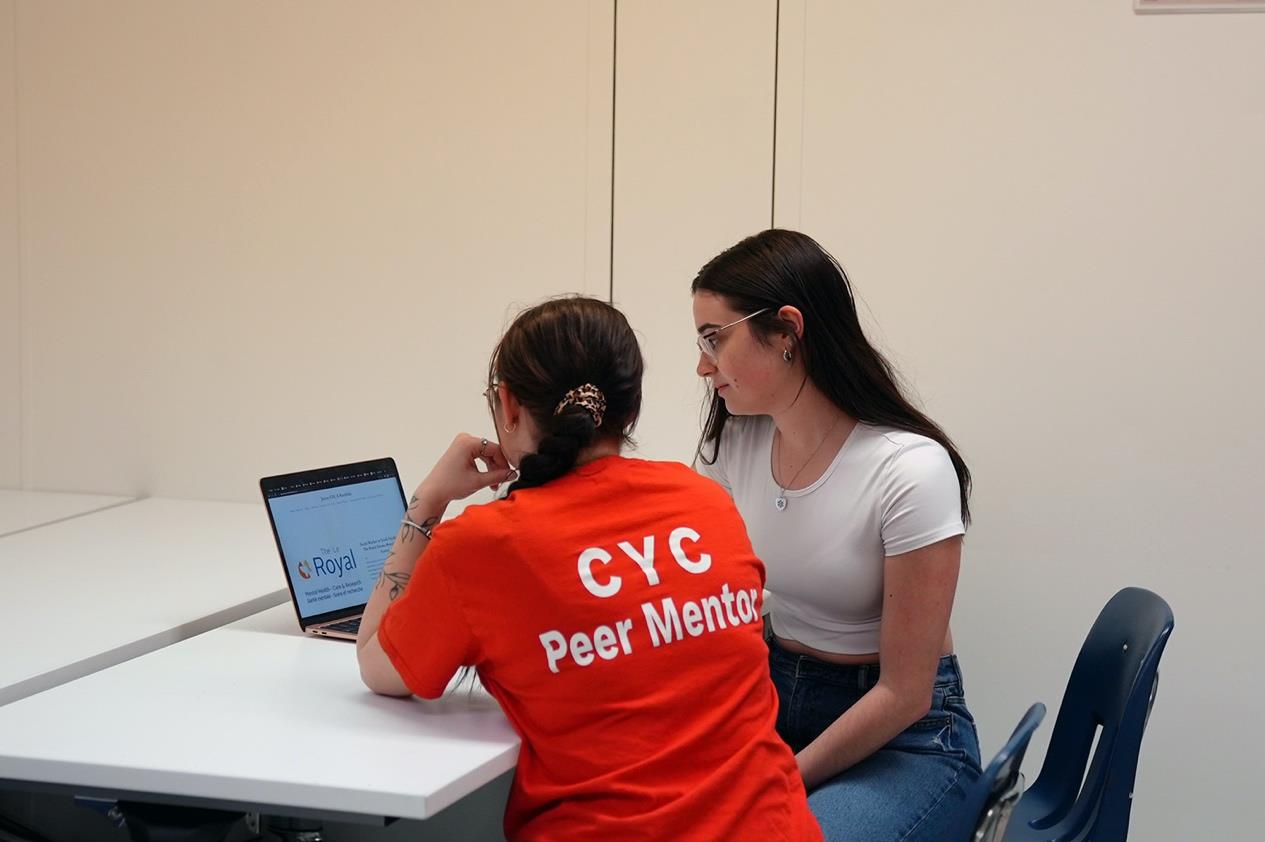
Loyalist CYC recognizes the importance of feeling like you belong and that you can easily access supports when needed. Faculty work hard to help learners feel connected and cared for. Another layer of support comes from our unique CYC-specific Peer Mentor program. Select Year 2 CYC’s act as Peer Mentors to help us welcome incoming students and provide encouragement and support throughout their first year. Peer Mentors help incoming students to feel comfortable in their new learning environment and share advice based on their own experiences in the program. Peer Mentors are another essential support to help us build a strong and welcoming CYC community.
- First Year - Semester One
- CADW1003 Child & Youth Development
-
This course provides a comprehensive exploration of the physical, cognitive, social, and emotional development of children and youth. This course is designed to equip learners with a deep understanding of the factors that influence development, the theories that explain these processes, and how we may enhance protective factors and reduce risk factors related to developmental outcomes.
- CYWP1001 Foundations of Child & Youth Care
-
This course is an introduction to the field of Child and Youth Care. Students explore the historical roots of the profession, the professional role of the Child and Youth Care practitioner and the scope of practice in the field. An examination of the theoretical approaches in the field will introduce the learner to guiding principles for their practice, including using strength based and ecological approaches to build relationships and enhance supports for children, youth and families.
- COUN1033 Helping Relationships
-
This course explores the fundamental therapeutic engagement skills utilized in the field of child and youth care. Skills essential for effective therapeutic interventions with children and youth include: building therapeutic rapport, active listening, questioning, seeking concreteness, and empowerment. This course puts theory into practice, incorporating extensive use of experiential role-plays in order to develop, practise, and improve one’s therapeutic engagement skills with children and youth.
- CYWP1010 Self in CYC Practice
-
This course explores elements of the self that impact child and youth care practice, including strengths, interests, personality, culture and opportunities for personal growth. The course facilitates the development of skills in reflective practice, utilizing self-care strategies, effective teamwork and conflict resolution. Effective use of the self in CYC practice is woven throughout the course.
- CYWP1009 Supporting Change
-
This course explores principles of learning theory to observe, assess and support changes in behaviour. Principles of change theory are introduced to assess individual readiness and enhance motivation to change. Goal setting is used to create meaningful changes in behaviour.
- GNED1100 Becoming a Global Changemaker
-
This Loyalist College graduate attributes course will help shape your perspectives, broaden your understanding of important issues affecting our societies today, and equip you with invaluable knowledge and skills that will inform your ability to influence your community in a meaningful and impactful way. By exploring topics such as cultural competency, Indigenous education, entrepreneurship, sustainability, health and wellness, and ecological literacy, you'll be equipped with a powerful toolkit that extends far beyond the classroom.
- First Year - Semester Two
- CYWP1013 Building Resilience
-
This course explores behaviour from a pain-based framework, utilizing the Circle of Courage to address risk and resilience. Learners will explore the universal needs of belonging, mastery, independence, and generosity and develop skills in assessing and enhancing support for children, youth, and families. Focus on a restorative approach to building community and repairing harm will be used and learners will explore their role in supporting youth through crises and high-risk behaviours.
- CYWP1012 Childhood Mental Health
-
This course explores mental health literacy in the Child & Youth Care field, building on prior learning about development and the foundations of child and youth care practice. The focus is on mental health diagnoses affecting children, youth and families, most notably the diagnoses that first appear in childhood. The course explores both theory and practice in relation to supporting children’s mental health and well-being.
- CYWP2010 Legislation for CYCs
-
This course examines the development, purpose and philosophy of legislation that governs the lives of children, youth and their families. Agencies and resources which enact the legislation to protect the rights and responsibilities of children, youth and their families will be introduced. The Child & Youth Care practitioner role as advocates for children's rights will be introduced.
- PROF1028 Professional Practice
-
This course is foundational in preparing students for practicum experiences in upcoming semesters, including exploration of opportunities, benefits and expectations in CYC practicum environments. The course initiates a framework and support for learners to develop a professional e-portfolio; reflecting on strengths, life experiences, prior learning, and the development of child and youth care competencies. Learners will continue to build on their portfolio throughout their time in the CYC program, with support and guidance from faculty.
Prerequisite: CYWP 1001, CYWP 1009
- CYWP1014 Therapeutic Interventions
-
This course provides students with fundamental skills in understanding the relationship between recreational and therapeutic programming to health and wellness and in achieving goals. Learners will gain experience in planning and implementing programming based on presenting needs and developmental levels of children and youth. Learners will develop a “toolbox” of intervention strategies that are practical, relevant, and easy to use with children and youth in a variety of settings.
- GNED General Education Elective
- General Education Courses
- Second Year - Semester Three
- CYWP2009 CYC Practice with Families
-
This course guides students to apply a child and youth care approach to work with families. It will introduce learners to current evidence-based practices for assessing, supporting and intervening with families. Case studies provide opportunities to practice assessing family systems for strengths and challenges and to develop a plan for intervention. In addition, students become familiar with community resources they will access while supporting families as a child and youth worker.
- CYWP2008 Engaging Youth
-
This course will support learners to engage with youth to identify and address societal issues that impact their lives. Learners will be eligible for certification in The Purposeful Use of Daily Life Events (DLE). DLE training focuses on the use of teachable opportunities in everyday moments with children and youth. Learners will examine their work with youth from a relational CYC approach including being with, doing with and interpreting work with youth.
- PROF2014 Integrative Seminar 1
-
This course provides discussion, coaching, and opportunities for exploration of issues, counselling strategies, and intervention methodologies conducive to the needs of individual children or youth in specialized settings.
Prerequisite: PROF 1028
Co-requisite: WKPL 2021
- WKPL2021 Practicum 1
-
This placement provides students with the opportunity, under supervision, to plan and implement counselling and specialized programming conducive to the needs of individual children or youth and the specialized setting.
Prerequisite: PROF 1028
Co-requisite: PROF 2014
- CYWP2007 Protecting Children, Youth, and Families
-
This course examines the complex dynamics surrounding child abuse, including witnessing violence within the home. Learners will explore the impact of abuse on children, families and communities and the various interventions and prevention strategies aimed at addressing this critical social problem. A strength-based and relational approach to our understanding and support of children, youth and families will be utilized.
Prerequisite: CYWP 1010, COUN 1033
- CYWP2002 Service Delivery Process
-
This course will examine the Child and Youth Care service delivery process, and the skills required for effective documentation. This includes the written and verbal communication skills specific to each phase of the treatment plan: intake; plan of care; progress reports; note taking and discharge plans. An overview of the service delivery and documentation process in residential, school-based and mental health settings will be included.
- CYWP2006 Youth Mental Health
-
This course is designed as a continuation of Childhood Mental Health. The content focuses on mental health of adolescence and young adulthood. Students learn to recognize symptoms and understand treatment approaches for mental health issues, as well as theories related to cause. Areas of focus include anxiety disorders, mood disorders, eating disorders, substance abuse and others. Understanding stigma, the Child and Youth Worker role, community supports and the assessment process will be common threads throughout the course.
- Second Year - Semester Four
- CYWP3000 Advocacy
-
The role of Child and Youth Care practitioners in using their special knowledge of children/youth’s needs to protect the rights of children and youth is increasing. This project-based course facilitates students to build skills and knowledge in serving children youth and families from an anti-oppressive, rights and strengths based approach. Various levels of advocacy will be explored including client and systemic advocacy, self-advocacy, community education, and improving access to resources. The course guides students to prepare and deliver an advocacy project which makes best use of their self as a CYC. The course uses relevant legislation and the United Nations Convention on the Rights of the Child (UNCRC) as the basis for advocacy.
- SOCI3002 Developing Cultural Humility
-
This course explores culture in many ways, with an aim to develop cultural humility for effective child and youth care practice. Focus will be put on increasing understanding of one's own and other cultural backgrounds, developing cultural humility in CYC practice, and allyship. Connections with various cultural groups in the local community enrich and deepen the learning experience.
- COUN3001 Facilitating Groups
-
This course builds on fundamental relational skills developed in Helping Relationships to support students to develop and facilitate group program sessions for children and youth. Facilitation skills will be developed through theoretical discussions, video demonstrations and practical lab applications in role play scenarios.
- PROF2015 Integrative Seminar 2
-
This seminar provides advanced discussion and leads learners to employ a variety of critical thinking skills necessary to integrate theory with practice. Examination of potential strategies and actual intervention methodologies will be examined.
Co-requisite: WKPL 2022
- WKPL2022 Practicum 2
-
This placement supports students, under supervision, to integrate theory with practice. This course includes an emphasis on working with children, youth and their families in specialized settings.
Co-requisite: PROF 2015
- PSYC3001 Trauma Informed Care
-
This course examines the principles and practices essential for understanding and implementing trauma-informed care with children and youth and within professional and caregiving contexts. Learners will gain a deep understanding of the impact of loss, chronic stress and trauma on individuals and communities, along with the tools and strategies needed to create safe, supportive and healing environments.
- GNED General Education Elective
- General Education Courses
- Second Year - Semester Five
- WKPL2063 Practicum 3
-
In this final practicum, learners will have the opportunity to demonstrate their knowledge and skills regarding the competencies required of the graduate Child and Youth Care Practitioner. With faculty support, learners will self-reflect and assess their performance and actively seek feedback to continue to learn and progress.
Prerequisite: CYWP 1014, CYWP 2010, PROF 1028, CYWP 2002, CYWP 2006, CYWP 2007, CYWP 2009, COUN 3001, CYWP 3000, PROF 2015, PSYC 3001, SOCI 3002, WKPL 2022, PROF 2014, WKPL 2021, CADW 1003, COUN 1033, CYWP 1001, CYWP 1009, CYWP 1010, CYWP 1012, CYWP 1013
*Courses subject to change.
Expand your qualifications at Loyalist
- Accelerated studies may be available in the Social Service Worker (SSWA) program; please contact the coordinator to discuss
- Earn a double diploma in another College program, in as little as two semesters
Turn your diploma into a degree
Many universities across Canada and abroad will provide credit recognition for your diploma studies at Loyalist College. The following is a list of agreements that are currently in place. There are many more options, and new agreements are added annually. Contact your university of choice to make individual arrangements. Click here for more information about university transfer agreements.
- Algoma University – B.A.; B.B.A.; B.Sc.; Bach. Computer Science
- Brock University – various*
- Carleton University – B.A. (Honours)
- Davenport University – B.A. General Business
- Griffith University – Bachelor of Social Work
- Humber College – Bachelor of Child and Youth Care
- Lakehead University – Bachelor of Social Work (Honours)
- Laurentian University – various*
- Laurier Brantford – any honours program
- Nipissing University – various*
- Queen's University – various*
- Royal Roads University – B.A. Justice Studies
- Metropolitan Toronto University – B.A. Child and Youth Care
- Seneca College – Bach. Interdisciplinary Studies
- University of Guelph – B.A.Sc. (Honours) Family and Community Social Services
- Ontario Tech University – B.A. (Honours) Criminology and Justice or Forensic Psychology or Legal Studies; B.A. Adult Education and Digital Technology; Commerce Bridge
- University of Waterloo – various*
- University of Windsor – B.A. (General or Honours); B.A. (Honours) Developmental Psychology or Disability Studies or Psychology; Bachelor of Social Work
- Wilfrid Laurier University – various*
- York University – various*
*Various potential degree pathways. Please confirm details with the receiving institution.
The Purposeful Use of Daily Life Events
Learners in the Child and Youth Care program at Loyalist College are eligible for participation and certification in The Purposeful Use of Life Events (DLE) training developed specifically for the CYC field by Thom Garfat, PhD (Canada), in collaboration with John Digney, PhD (Ireland), and Leon Fulcher, PhD (New Zealand). This two-day workshop style training helps learners become more intentional and effective in their daily interactions with children, youth, and their families. DLE captures the powerful opportunities in everyday moments and events in a young person’s life and how we can use these moments to help young people and/or families move toward their goals. Essentially, DLE allows us to use a relational approach while making every moment meaningful in our support of children, youth, and their families.
How much will it cost?
Approximate costs (2023 – 24)
- Domestic Tuition: $2,722.08
- Full-Time Ancillary Fees:* $1,308
- Total: $4,030.08
- Additional Program Costs: $316 (year one) $355 (year two) and $55 (year three)
Additional costs, such as supplies, travel and parking, may be incurred during workplace visits, etc.
*Fees related to programs that are less than or greater than two semesters will be adjusted accordingly. Fees are subject to change. Please visit the Tuition and Fees web page for a list of the many services, activities and items included within the ancillary fees, and the related policies.
Bursaries and financial assistance
Loyalist College has a number of scholarships, bursaries, and academic awards available to students. Our Financial Aid Office can help you explore your options, or assist you with a student loan.
Admission requirements
Required academic preparation
- OSSD/OSSGD or equivalent with courses at the general, advanced, (C), (U) or (M) level, and
- Grade 12 English (C) level or equivalent
OR
Additional requirements
- Criminal Record Check and Vulnerable Sector Check; required prior to first practicum (semester three)
- Some placements require Standard First Aid and Level “C” CPR certification. It is recommended that all students complete this certification; information about specific placement requirements may be obtained through the field placement coordinator
- Prospective students with identified needs or limitations that may affect their practicum or potential employment opportunities are encouraged to discuss their career goals with faculty prior to admission
Advanced standing
- Direct entry into year two is available to applicants with a diploma in Social Service Worker, Developmental Services Worker, Early Childhood Education, General Arts and Science with a social studies focus, Justice Studies, or a relevant university degree
- A minimum 60% overall average is required
- Applicants with other post-secondary credentials will be assessed on an individual basis
- Please book some time to meet with the program coordinator for more details or to determine the length of your customized learning experience
LEARN MORE ABOUT DIRECT ENTRY
Prior learning assessment and recognition
Applicants with work experiences or other types of non-credentialed learning may be eligible for credits at Loyalist. Graded credits (as opposed to exemptions) are granted. Click here for more information about our assessment and credit challenge process.
International students
Click here for information about how to apply, international student fees and more.
Campus News
RETHINK THE DRINK TALKBACK TOUR VISITS LOYALIST COLLEGE
 Belleville, Ontario, November 3, 2016 - One hundred and twenty-seven students representing 25 programs at Loyalist College attended the Rethink the Drink Talkback Tour in the Shark Tank on Wednesday,... Read More
Belleville, Ontario, November 3, 2016 - One hundred and twenty-seven students representing 25 programs at Loyalist College attended the Rethink the Drink Talkback Tour in the Shark Tank on Wednesday,... Read More
Poverty Challenge a “Life-Changing Experience”
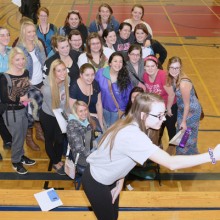 by Felicity Allcorn, first-year Child and Youth Worker student
by Felicity Allcorn, first-year Child and Youth Worker student
On Tuesday, November 4, Loyalist faculty and members of the community gave students in the Child and Youth Worker program an opportunit... Read More
All Hands on Deck to Show Support for Child Abuse Prevention Month

By: Brittany Beckett, third-year Loyalist College Child and Youth Worker student
Throughout the month of October, Loyalist College Child and Youth Worker (CYW) students had the opportunity to run... Read More
Loyalist College Child and Youth Worker Students Participate In Povert...

Belleville, Ontario, November 18, 2013 – On Wednesday, November 20, students from the Child and Youth Worker program at Loyalist College will participate in a Poverty Challenge on campus. This... Read More
Loyalist Child and Youth Worker Students Meet The World

By Zac Shunock, second-year Loyalist College Photojournalism student
Loyalist College Child and Youth Workers were represented by three deserving students at the first-ever Child & Youth Care W... Read More
In the News
 The National Post
The National Post
 yahoo! news
yahoo! news
 Toronto Star
Toronto Star
 InQuinte
InQuinte
 Belleville Intelligencer
Belleville Intelligencer






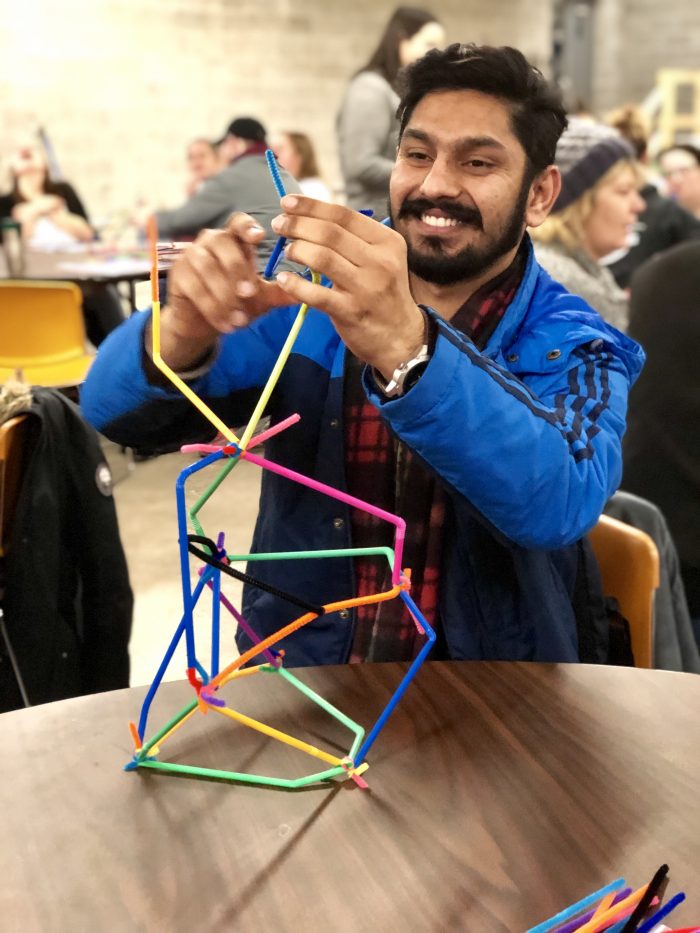
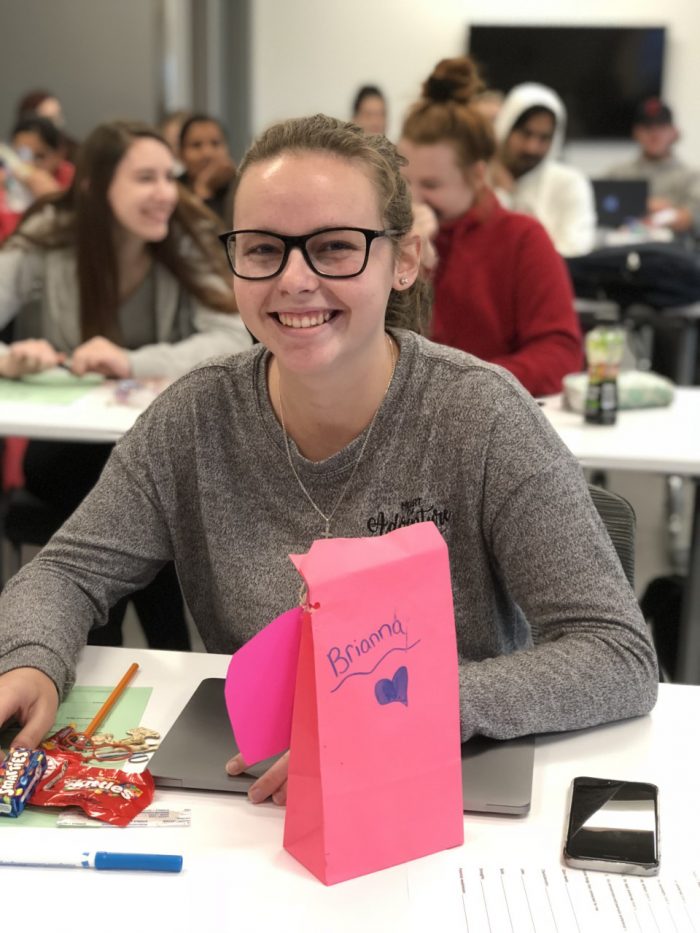
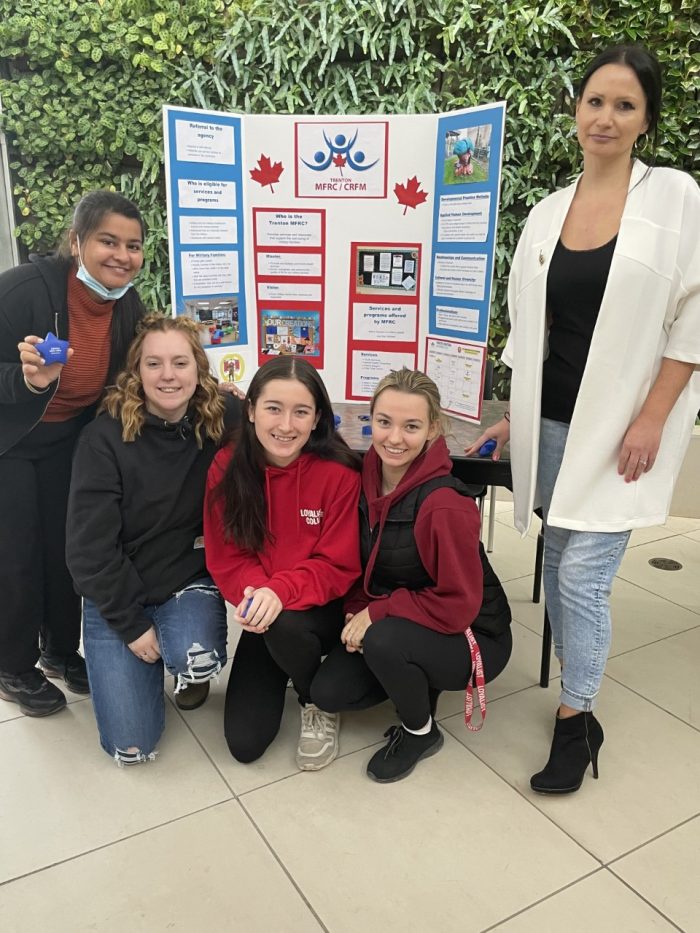
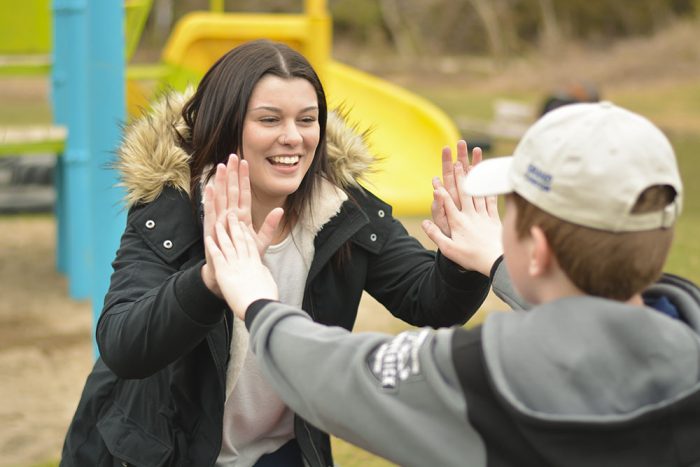
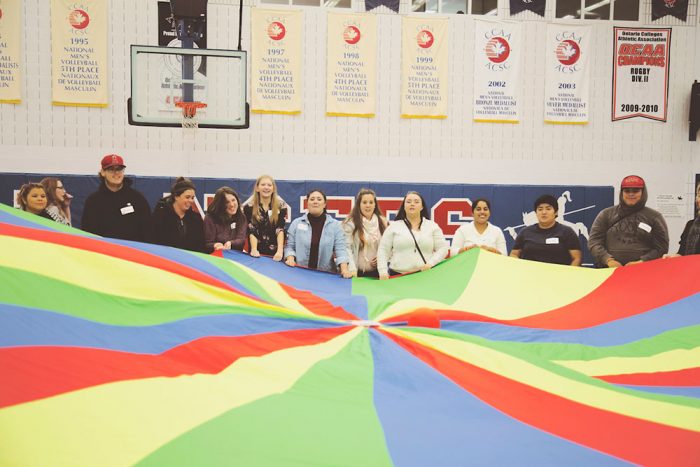
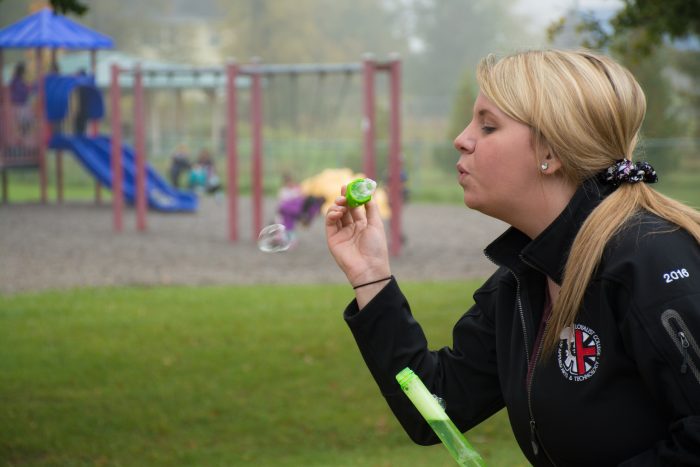
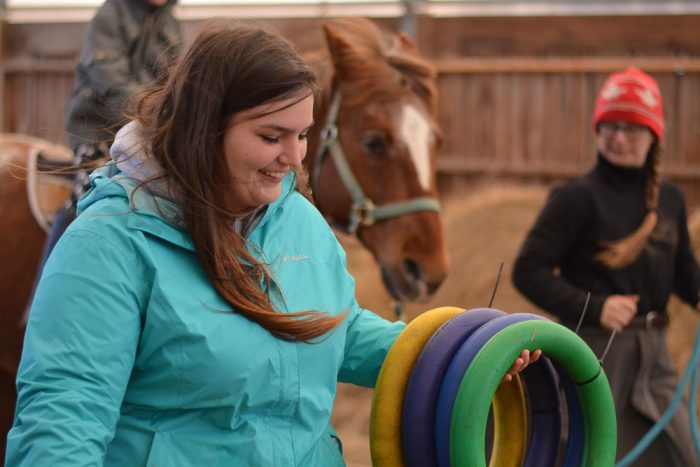
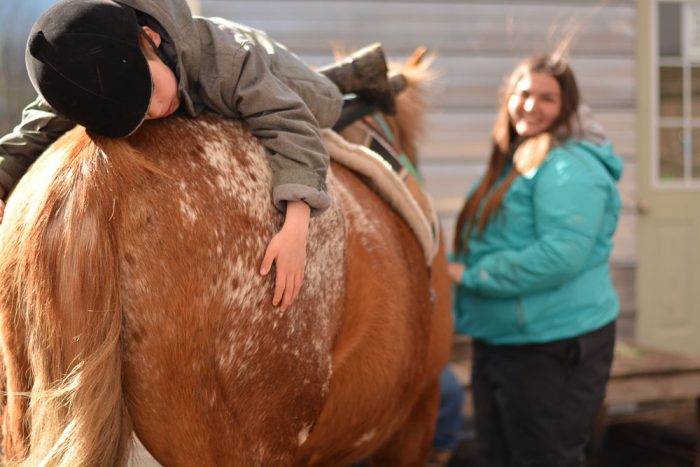
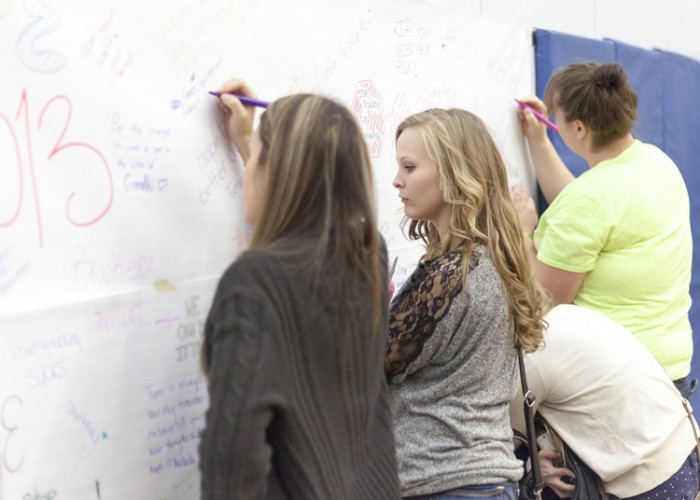
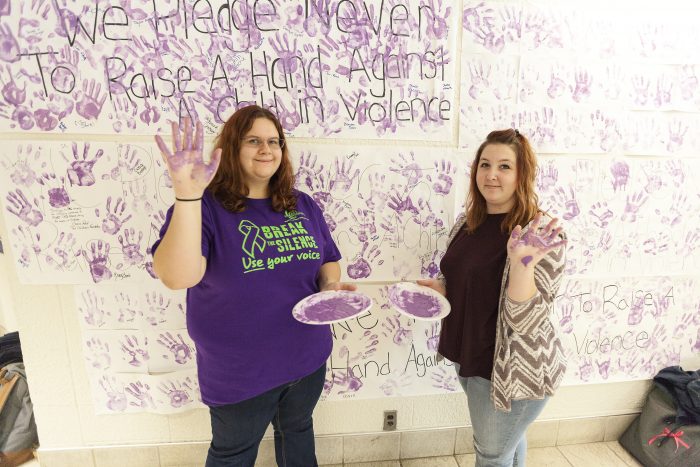
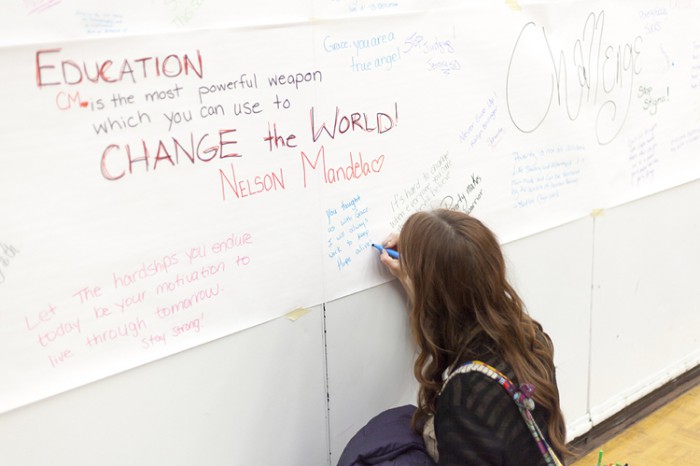
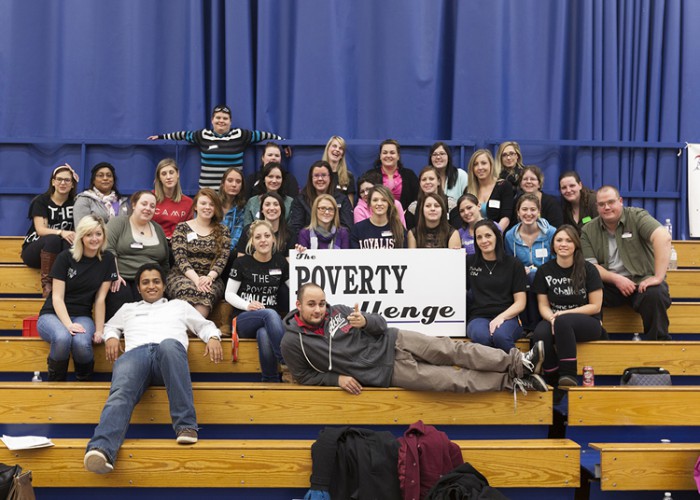
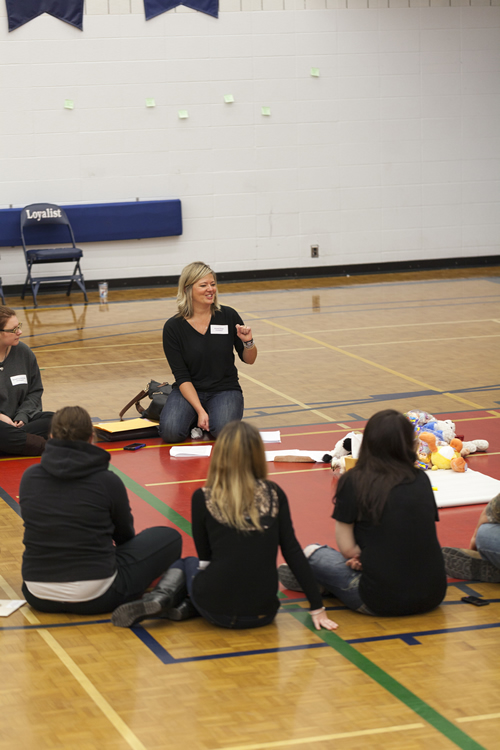
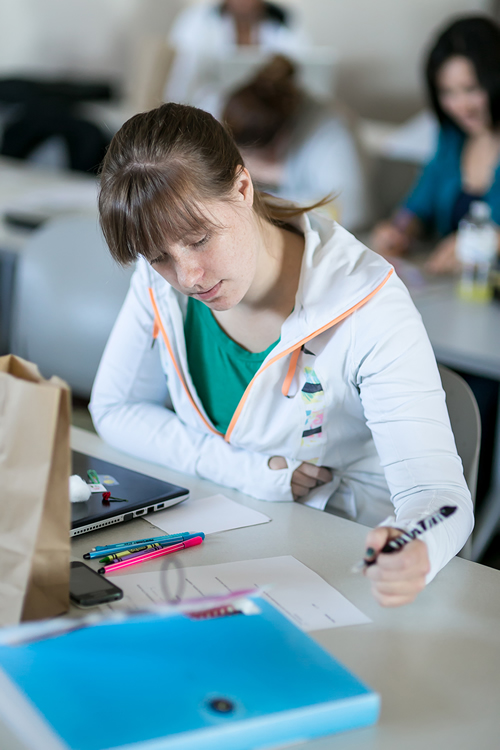
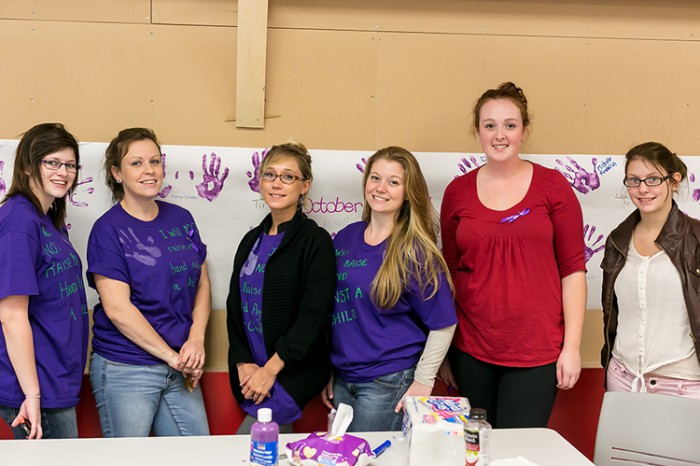
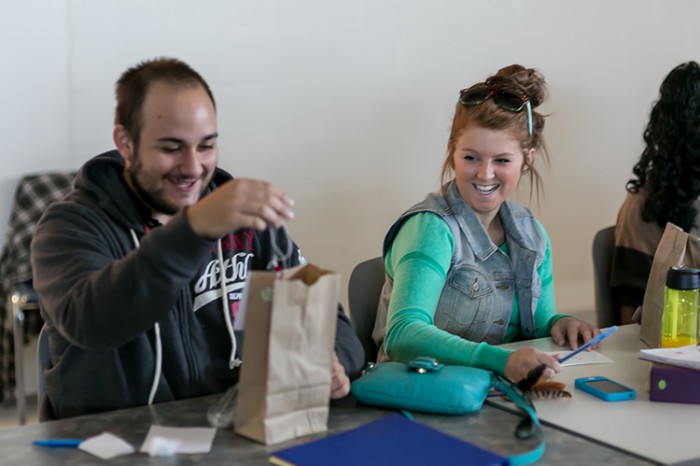
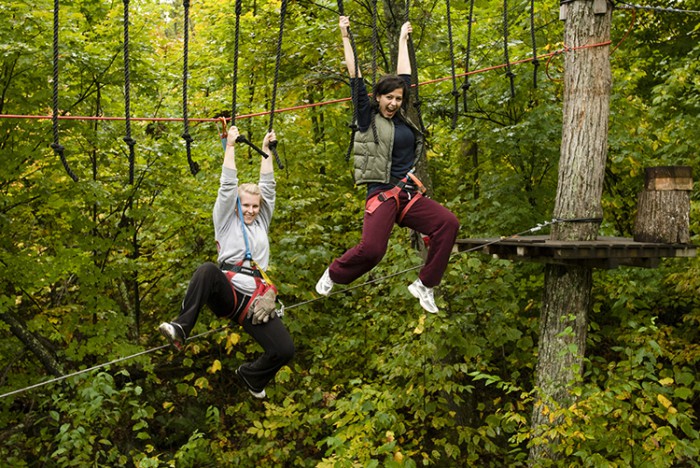
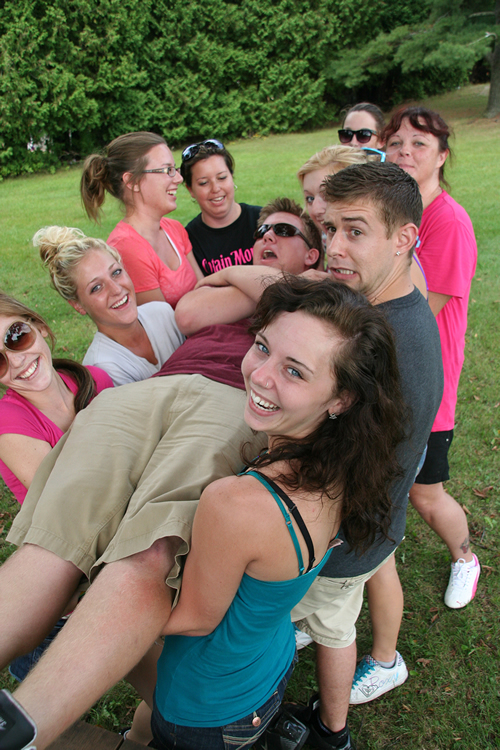
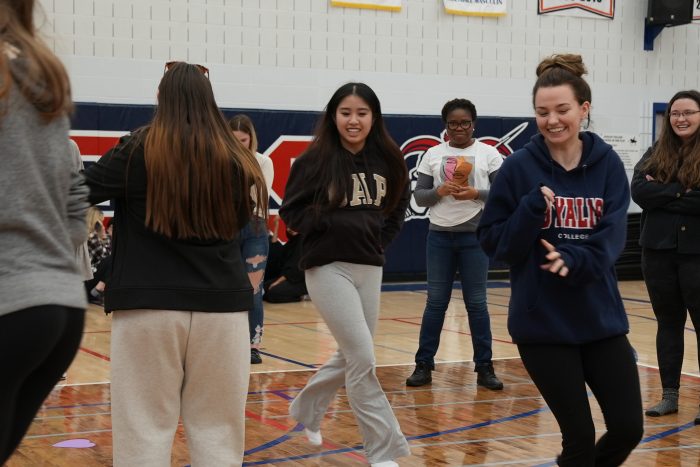
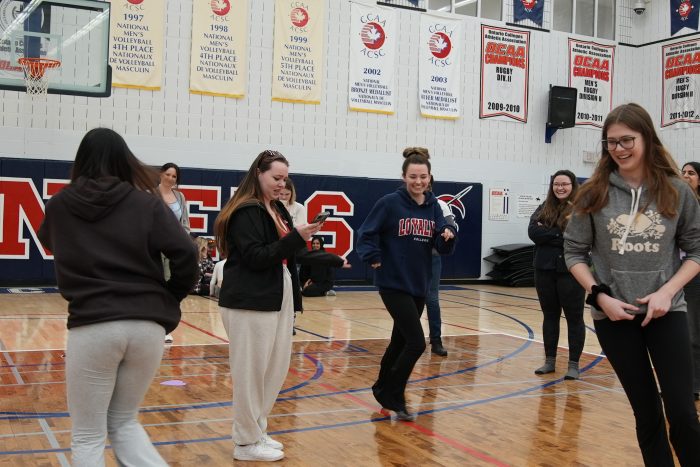
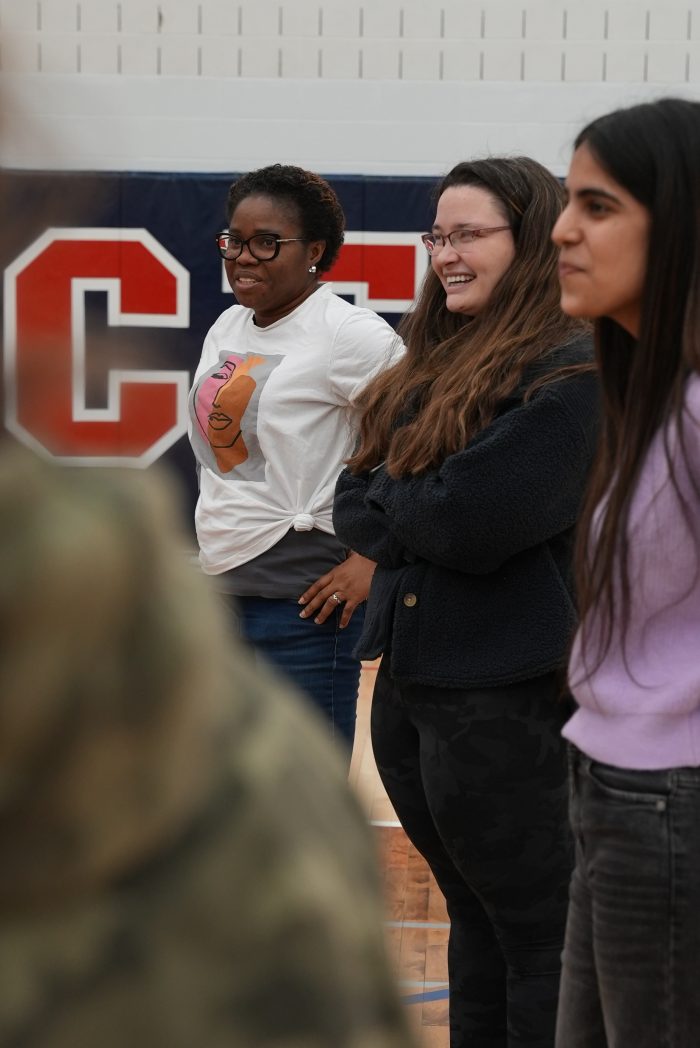
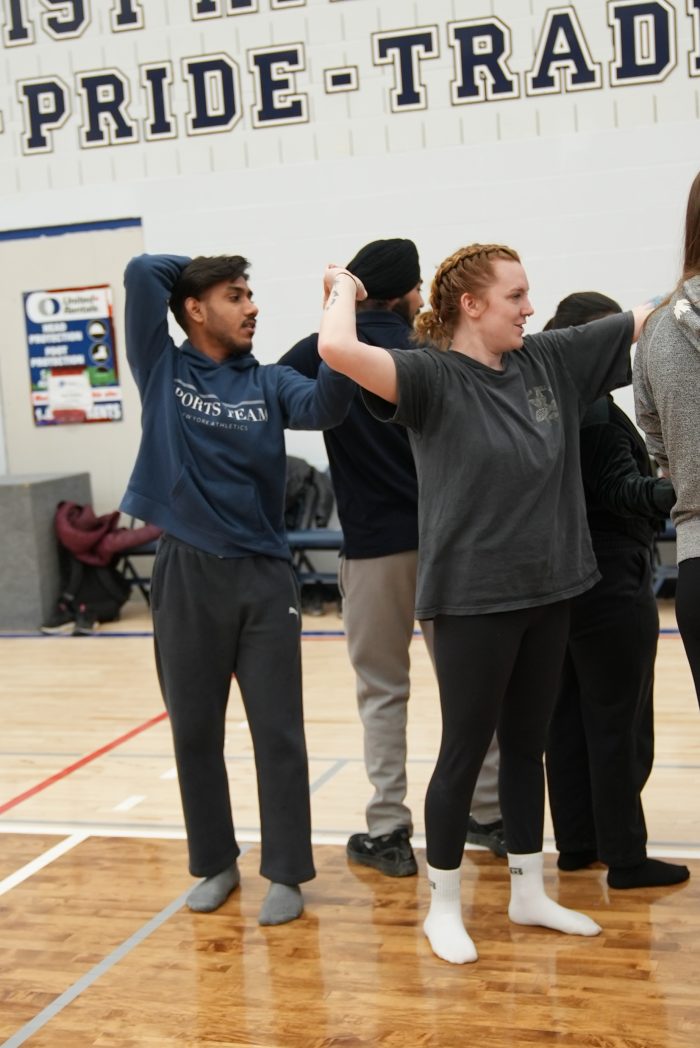
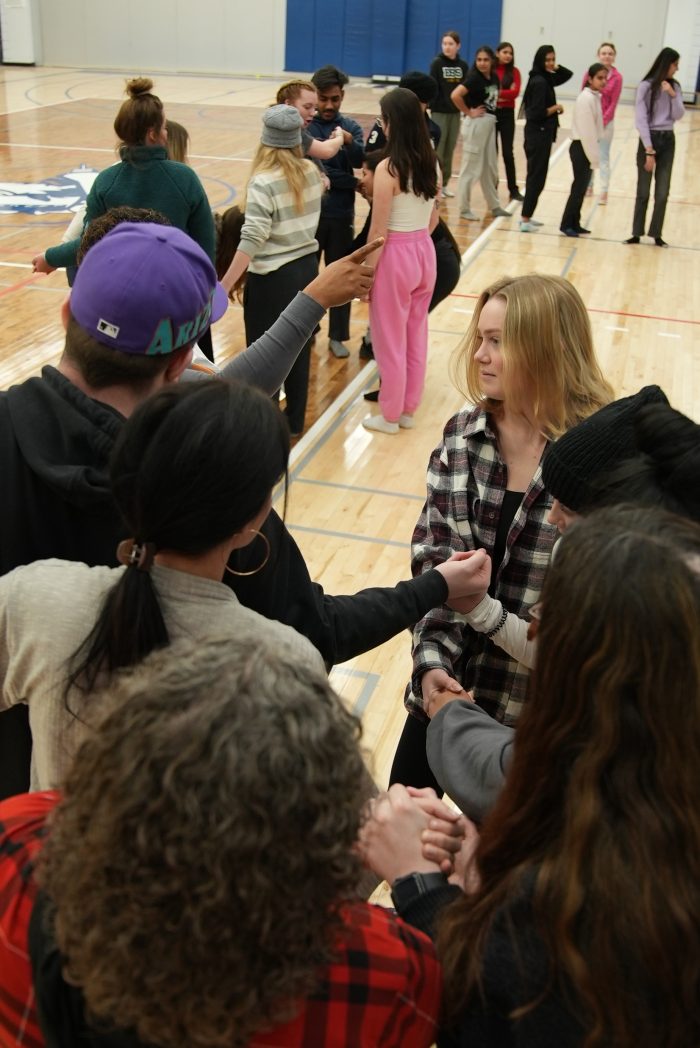
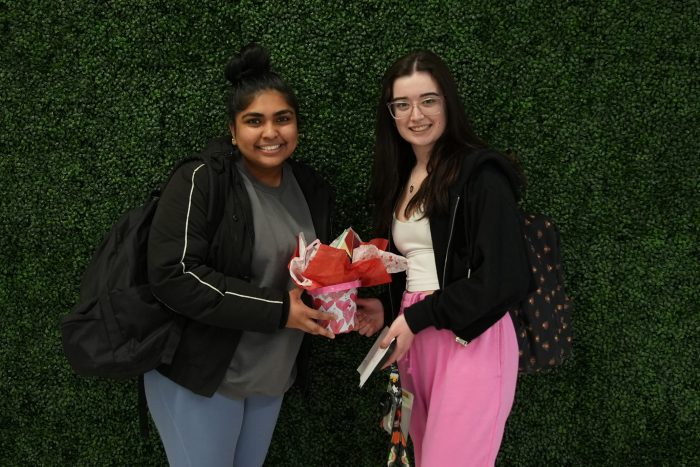
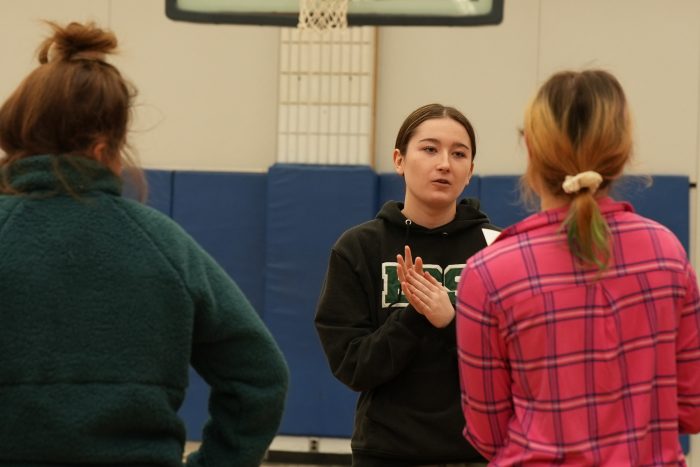
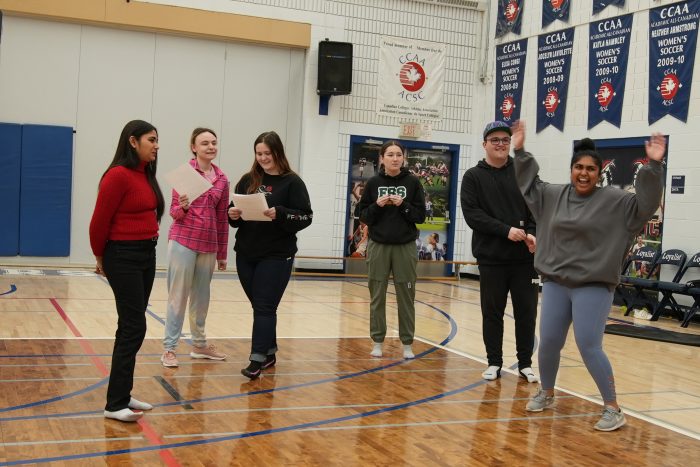

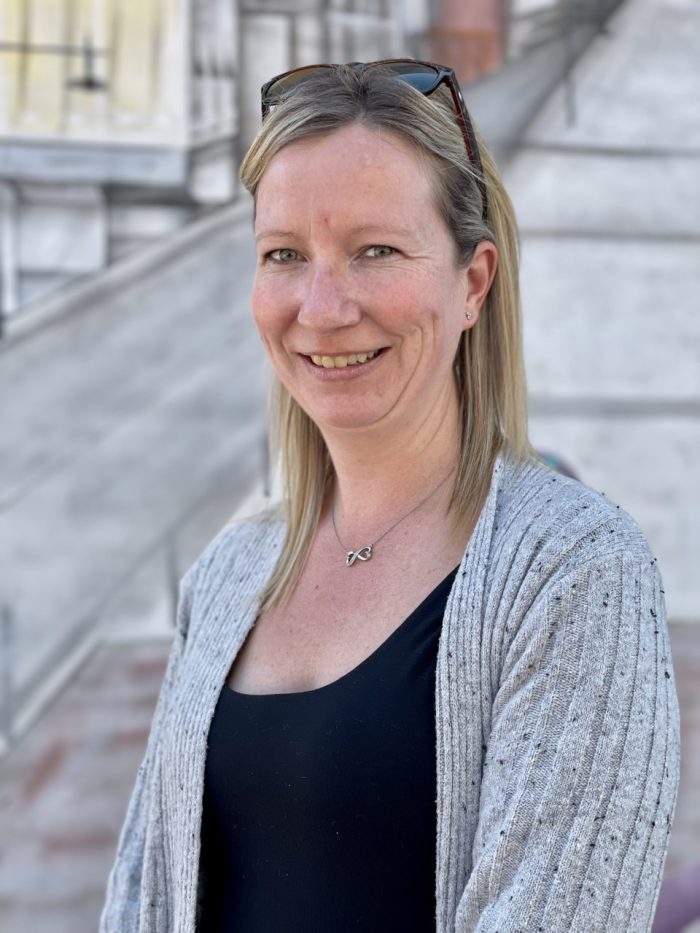





 Belleville, Ontario, November 3, 2016 - One hundred and twenty-seven students representing 25 programs at Loyalist College attended the Rethink the Drink Talkback Tour in the Shark Tank on Wednesday,...
Belleville, Ontario, November 3, 2016 - One hundred and twenty-seven students representing 25 programs at Loyalist College attended the Rethink the Drink Talkback Tour in the Shark Tank on Wednesday,...  by Felicity Allcorn, first-year Child and Youth Worker student
by Felicity Allcorn, first-year Child and Youth Worker student